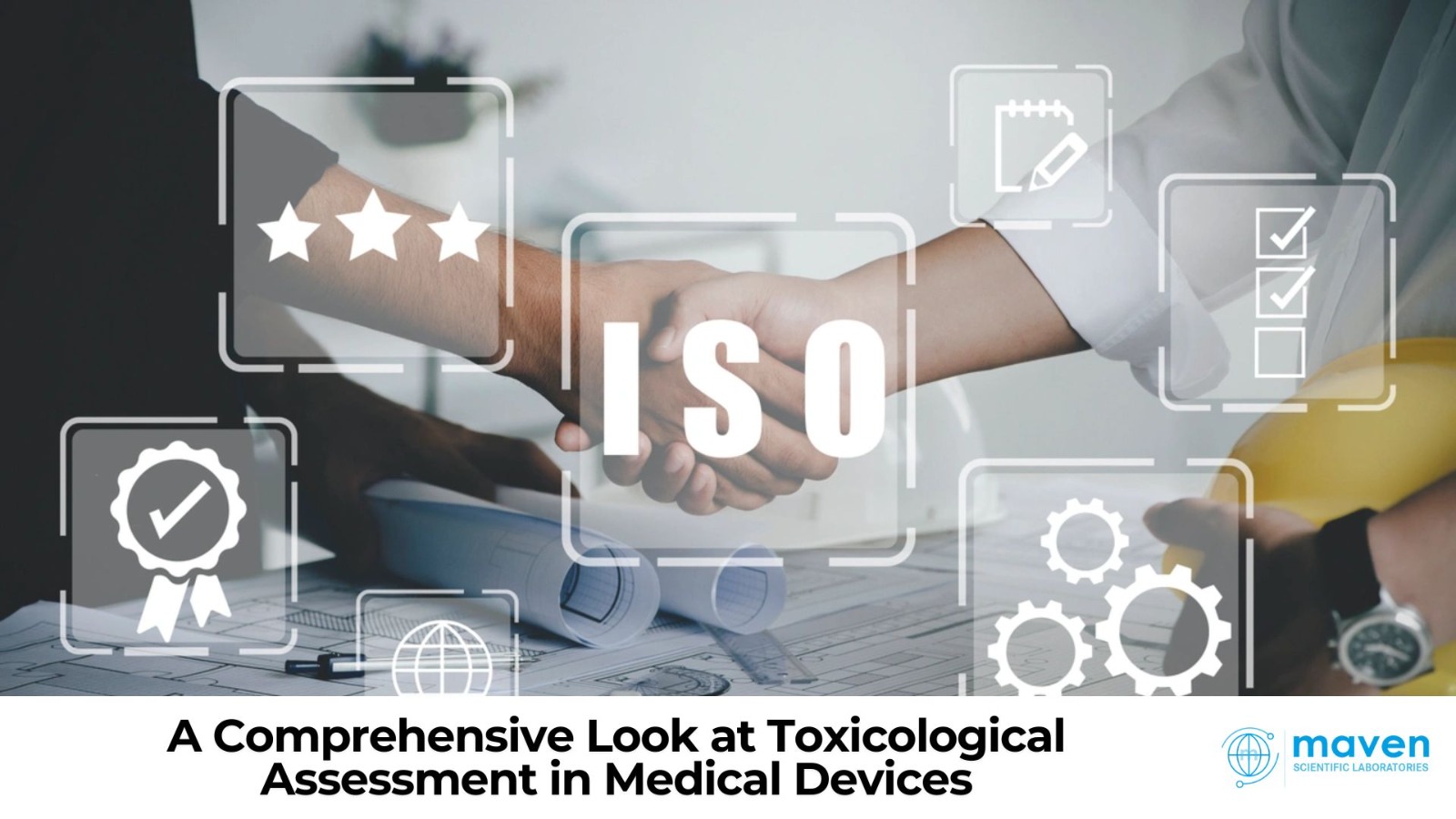
A Comprehensive Look At Toxicological Assessment In Medical Devices
Ensuring Patient Safety Through Science-Based Chemical Risk Evaluation
Medical devices—from simple bandages to complex implants—play a critical role in healthcare. As materials used in these devices may interact with the body, ensuring their safety through toxicological assessment is essential. This process evaluates the potential health risks from chemicals released by device materials, ensuring compliance with international standards and protecting patient safety.
What Is Toxicological Assessment?
Toxicological assessment is a core component of biocompatibility evaluation under ISO 10993-1. It involves identifying and analyzing chemical substances that may leach from device materials under intended use conditions. The goal is to determine if exposure to these substances poses any unacceptable health risk.
Why It Matters
Devices can release chemicals that cause local or systemic toxicity, allergic reactions, or long-term health effects. Toxicological evaluation helps:
- Ensure patient safety and public health
- Achieve regulatory compliance (FDA, EMA, EU MDR)
- Reduce animal testing via in silico and chemical characterization tools
- Guide material selection and design
Key Steps in a Toxicological Risk Assessment
- Material Characterization (ISO 10993-18)
Identifies extractables and leachables from device components through analytical testing. - Toxicological Data Review
Uses global databases (e.g., IARC, ECHA) to evaluate toxic properties (e.g., LD??, NOAEL, CMR classification). - Exposure Estimation
Calculates potential patient exposure based on device type, use duration, and contact surface area. - Risk Characterization
Compares estimated exposure with Tolerable Intake (TI) or Permitted Daily Exposure (PDE) to determine safety margins.
Regulatory Frameworks and Standards
- ISO 10993-17: Derivation of allowable limits
- ISO 10993-18: Material chemical characterization
- FDA Biocompatibility Guidance (2020): Risk-based assessment
- EU MDR (2017/745): CMR and endocrine disruptor evaluation
Maven’s Expertise in Toxicological Risk Assessment
Maven Scientific Laboratories offers full-spectrum toxicology services:
- Material review and extractables/leachables analysis
- In silico toxicology (QSAR, TTC, database mining)
- Derivation of TIs and PDEs by certified toxicologists (ERT, DABT, BTS)
- Risk mitigation strategies to support device development
- Regulatory-ready toxicology reports for FDA, EU MDR, and more
Best Practices for Manufacturers
- Integrate toxicology into your quality management system
- Conduct regular risk assessments
- Monitor regulatory updates
- Involve toxicology experts early in development
Emerging Trends
- Computational Toxicology: Expanding predictive assessments
- Reduced Animal Testing: In vitro and threshold-based approaches
- Endocrine Disruption Focus: Increased scrutiny of hormonal risks
- Green Chemistry: Safer material design from the outset
Final Thoughts
Toxicological assessment is not just regulatory—it’s foundational to patient safety and innovation. With growing device complexity and regulatory expectations, sound toxicology is more vital than ever.
Partner with Maven to bring scientifically sound, compliant medical devices to global markets with confidence.







